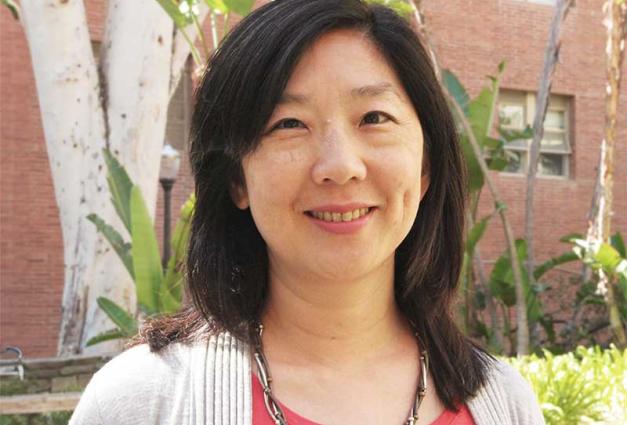As of July 1, a new editorial team has taken the reins of Social Psychological and Personality Science (SPPS), one of three journals affiliated with SPSP. Please join us in welcoming new Editor-in-Chief Christian Unkelbach and his co-editors!
SPPS is a unique short reports journal in social and personality psychology, aiming to publish concise reports of empirical studies. SPPS strives to publish research that advances social psychological and personality science. Submissions may present new theory, data, methods, or any combination of these. The journal offers a fast review and publication process to allow research to quickly become part of the scientific conversation.
We would also like to thank outgoing Editor-in-Chief Margo Monteith and her team for their tireless work in support of SPPS. We look forward to working with the new editorial team in the years ahead!
Meet the new editorial team below and please reach out to [email protected] or Christian Unkelbach at [email protected].
Editor-in-Chief

Christian Unkelbach
Dr. Christian Unkelbach has held a chair for Experimental Psychology at the University of Cologne since 2011. His research interests include social evaluations, evaluative learning, prejudices against Muslims, sport psychology, and economic behavior. He started his PhD education at the University of California at Santa Barbara, and received his doctorate from the University of Heidelberg in 2005. This was followed by a research stay in Australia at the University of New South Wales with a grant from the Humboldt Foundation. Dr. Unkelbach served as Editor-in-Chief of Social Psychology from 2013-2016 and has also served as Associate Editor of the Journal of Personality and Social Psychology, Experimental Psychology, and Social Psychology.
Senior Editors

Tal Eyal
Tal Eyal is an associate professor of social psychology at Ben Gurion University of the Negev, Israel. Dr. Eyal graduated from the social psychology program at Tel Aviv University, and was a postdoc at the Center for Decision Research at Booth Business School, University of Chicago. She studies the interface between emotion, cognition, and motivation. She primarily examines how distinct emotions are regulated by different strategies as well as influence self-regulation. She also examines what enables mind perception accuracy. She has served as an associate editor for the Journal of Personality and Social Psychology, Experimental Psychology, and Social Psychology.

Eranda Jayawickreme
Eranda Jayawickreme is the Harold W. Tribble Professor of Psychology and Senior Research Fellow at the Program for Leadership and Character at Wake Forest University. He is a personality psychologist whose work focuses on post-traumatic growth, moral personality, personality dynamics, and well-being. His awards include the 2023 Early Career Contributions Award from the International Society for the Science of Existential Psychology, the 2018 Faculty Excellence in Research Award from Wake Forest, and the 2015 Rising Star award from the Association for Psychological Science. His work has been profiled in the New York Times, the BBC, the Guardian, NPR, the Philadelphia Inquirer, the Washington Post, Scientific American, PBS, and Slate. He is also currently an associate editor for the Journal of Personality and Social Psychology: PPID.
Editors

Rodica Damian
Dr. Rodica Damian is an Associate Professor of psychology at the University of Houston and Director of the Personality Development and Success Lab. More information about her team and current projects is at https://www.damianlab.com. Dr. Damian's research program is dedicated to understanding the precursors of career success and well-being as well as the underlying developmental mechanisms, and how people can overcome adversity and thrive. She has an integrative approach, looking at individual differences, life experiences, and social contexts. Her awards include the Rising Star designation from the Association for Psychological Science (2018) and the Sage Young Scholar Award from the Society for Personality and Social Psychology (2020). She has served on the editorial boards of the Journal of Personality and Social Psychology (2021 to date), Perspectives in Psychological Science (2016-2021), and Advances in Methods and Practices in Psychological Science (2017 to date). She has also served on the Professional Development Committee of the Society for Personality and Social Psychology (2019-2023) and as an Elected Member-at-Large on the Executive Board of the Association for Research in Personality (2020-2023). She currently serves as Associate Chair of the Department of Psychology at the University of Houston (2022 to date).

Yuthika Girme
Dr. Yuthika Girme is an associate professor in the Psychology Department at Simon Fraser University. Dr. Girme received her PhD from the University of Auckland, New Zealand in 2015. Dr. Girme investigates the complexities inherent in close relationships through applying nonlinear models to deepen understanding of relationship processes, and examining singlehood experiences to broaden the focus of close relationships. Her work focuses on numerous processes that have important practical implications, including social support, attachment insecurities, emotion regulation, and societal stigma and discrimination. Dr. Girme has received early career awards such as the Society of Experimental Social Psychology (SESP) Dissertation Award and the Association of Psychological Science (APS)Rising Star Award.

Adam Hahn
Dr. Adam Hahn is a Senior Lecturer in the Department of Psychology at the University of Bath. He obtained his PhD from the University of Colorado in 2012. Dr. Hahn's research lies at the intersection of social-psychological research on stereotyping and prejudice, cognitive psychology, and methodology. Using experimental laboratory methods, Dr. Hahn works to advance our understanding of the cognitive processes involved in intergroup relations, evaluations, and attitudes, as well as how these insights apply to relevant questions and challenges we experience in our current societies. He received SPSP's Early Career Award in 2018 and the APA 2015 New Investigator Award for his work on conscious awareness in discussions around implicit measures.

Shenel Husnu Raman
Dr. Shenel Husnu Raman is a Professor of Social Psychology at Eastern Mediterranean University in north Cyprus. She obtained her BSc in Psychology and MSc in Social Psychology from Middle East Technical University, Turkey, and her PhD from the University of Kent, UK. Her research is in the field of intergroup relations, namely prejudice reduction as well as gender psychology and LGBTI+ studies.

André Mata
Dr. André Mata is an Assistant Professor at the University of Lisbon and received his PhD from ISCTE-University Institute of Lisbon in 2010. His research interests include judgment and decision-making, social cognition, motivated reasoning, metacognition, reasoning and dual-process models, and moral judgment.

Danny Osborne
Dr. Danny Osborne is an Associate Professor in the School of Psychology at the University of Auckland. Danny received his PhD from UCLA in 2011, where he studied social psychology with an emphasis in political psychology and quantitative methods. Dr. Osborne's research seeks to understand the causes and consequences of inequality, with a particular emphasis on political ideology and collective action. He received the CABLE Research Impact Award from the University of Auckland, the Royal Society Te Apārangi Early Career Research Excellence Award, and the Early Career Research Award from the Society of Australasian Social Psychologists.

Lora Park
Dr. Lora Park is an Associate Professor in the Department of Psychology at the University at Buffalo. She completed her PhD at the University of Michigan and her research focuses broadly on questions pertaining to the self, motivation, well-being, and interpersonal processes. Overall, my research advances knowledge and understanding of how people's experience of themselves affects motivation, well-being, and relationships, and identifies interventions to improve important societal outcomes, such as broadening participation of underrepresented groups in Science, Technology, Engineering, and Math (STEM).

Alexa Tullett
Dr. Alexa Tullett is an Associate Professor at the University of Alabama. Dr. Tullett completed her PhD at the University of Toronto in 2012. Her research lab examines scientific, religious, and political beliefs, and the factors that facilitate or impede belief change. Some of Dr. Tullett's work takes a meta-scientific approach, using psychological methods to study the beliefs and practices of psychological scientists. Dr. Tullett received the Outstanding Faculty Award from her department's Psychology Graduate Student Association in 2021.




